Introduction to Car Accident Lawsuits
A car accident lawsuit is a legal process initiated by individuals seeking compensation for injuries or damages resulting from a car accident. This type of lawsuit aims to hold the responsible party accountable and recover costs related to medical expenses, property damage, and other losses. Understanding the basics of these lawsuits helps individuals navigate their legal options and seek fair compensation for the impact of the accident on their lives.
Definition and Purpose of a Car Accident Lawsuit
A car accident lawsuit is a legal action taken by someone injured or affected by a car accident. The goal is to seek compensation for damages caused by the accident. This compensation can cover medical bills, repair costs, lost wages, and more. The lawsuit holds the responsible party accountable for their actions. It also ensures that the injured party gets the financial support they need to recover.
Why Understanding Car Accident Lawsuits is Important
Understanding car accident lawsuits helps individuals know their rights and options after an accident. It clarifies how to seek justice and what to expect in the legal process. Knowing about these lawsuits helps people make informed decisions about their case. It also ensures they are aware of how to collect evidence, file claims, and seek the help of legal professionals.
Types of Car Accident Lawsuits
Personal Injury Claims
A personal injury claim is a type of car accident lawsuit where the injured party seeks compensation for physical injuries sustained in the accident. This can include medical expenses, rehabilitation costs, and compensation for pain and suffering. The goal is to cover the financial and emotional impact of the injuries.
Property Damage Claims
Property damage claims involve seeking compensation for damage to property caused by a car accident. This can include repair costs for the damaged vehicle and any other property affected, like fences or buildings. The aim is to recover the cost of repairs or replacement for the damaged property.
Wrongful Death Claims
Wrongful death claims are filed when a person dies as a result of a car accident. The family or estate of the deceased can seek compensation for losses such as funeral expenses, lost income, and loss of companionship. This type of car accident lawsuit addresses the financial and emotional impact of the death on surviving family members.
Common Causes of Car Accidents Leading to Lawsuits
Distracted Driving
Distracted driving is when a driver’s attention is diverted from the road. This can happen due to phone use, eating, or adjusting the radio. Distractions increase the risk of accidents and can lead to car accident lawsuits if the distracted driver is found at fault.
Speeding
Speeding involves driving above the posted speed limit. It reduces the driver’s ability to react to sudden changes and increases the severity of accidents. Car accident lawsuits often result from accidents where speeding was a factor.
Driving Under the Influence
Driving under the influence means operating a vehicle while impaired by alcohol or drugs. This significantly impairs a driver’s ability to control their vehicle and increases the likelihood of causing an accident. Car accident lawsuits are common in cases where intoxication is involved.
Reckless Driving
Reckless driving refers to driving in a manner that shows a disregard for safety. This can include aggressive maneuvers, tailgating, and ignoring traffic signals. Car accident lawsuits frequently arise from accidents involving reckless driving.
Weather Conditions
Weather conditions such as rain, snow, or fog can make driving hazardous. Drivers may lose control of their vehicles or fail to adjust their driving for the conditions. Car accident lawsuits can result from accidents caused by poor weather conditions, especially if the driver did not take proper precautions.
Key Legal Terms and Concepts
Liability
Liability refers to the legal responsibility for causing harm or damage. In a car accident lawsuit, establishing liability means proving who is at fault for the accident and is responsible for compensating the injured party.
Negligence
Negligence is a failure to take reasonable care that results in harm or damage. In a car accident lawsuit, proving negligence involves showing that the at-fault driver did not act with the care expected, leading to the accident and injuries.
Damages
Damages are the financial compensation awarded to cover losses resulting from an accident. This can include medical expenses, property repair costs, and compensation for pain and suffering. Damages are sought in a car accident lawsuit to address the impact of the accident on the injured party’s life.
Comparative Fault
Comparative fault is a legal concept where the responsibility for an accident is divided among all parties involved. In a car accident lawsuit, if the injured party is found to be partially at fault, their compensation may be reduced according to their share of the fault.
Statute of Limitations
The statute of limitations is the time limit within which a car accident lawsuit must be filed. If a lawsuit is not filed within this period, the injured party may lose their right to seek compensation. Understanding the statute of limitations is crucial for ensuring legal action is taken in a timely manner.
The Process of Filing a Car Accident Lawsuit
Gathering Evidence
The first step in filing a car accident lawsuit is gathering evidence. This involves collecting all relevant documents and information related to the accident. Key evidence includes police reports, medical records, photographs of the accident scene, and witness statements. Strong evidence helps build a solid case and supports your claims.
Filing a Complaint
Next, you need to file a complaint with the court. This is a formal document that outlines the details of the accident, the damages claimed, and the legal basis for the lawsuit. The complaint is submitted to the court, and a copy is served to the defendant. This step officially starts the legal process.
Discovery Process
The discovery process follows the filing of the complaint. During discovery, both parties exchange information and evidence related to the case. This may include depositions, written questions, and requests for documents. The goal is to gather all relevant facts and prepare for potential settlement or trial.
Settlement Negotiations
Before going to trial, there are often settlement negotiations. This is where both parties discuss a possible settlement to resolve the case without a trial. The parties negotiate terms and compensation, and if an agreement is reached, it is formalized through a settlement agreement. This step can save time and legal costs.
Trial Process
If a settlement is not reached, the case proceeds to the trial process. During the trial, both sides present their evidence and arguments before a judge or jury. After hearing all the evidence, the judge or jury makes a decision on liability and damages. The trial process can be lengthy and involves presenting your case clearly and effectively.
What to Expect During the Lawsuit Process
Pre-Trial Activities
During pre-trial activities, various preparations occur before the actual trial begins. This includes filing legal documents, setting dates for hearings, and organizing the case strategy. Both sides will prepare by reviewing evidence, outlining arguments, and planning witness testimony.
Discovery and Evidence Gathering
In the discovery and evidence gathering phase, both parties collect and exchange information relevant to the case. This may involve obtaining documents, interviewing witnesses, and conducting depositions. The aim is to gather all necessary evidence to support your claims or defenses in the car accident lawsuit.
Mediation and Settlement Discussions
Mediation and settlement discussions offer a chance to resolve the case without going to trial. A neutral mediator may help facilitate negotiations between the parties. Both sides discuss possible settlement terms to avoid the uncertainty and expense of a trial. If a settlement is agreed upon, it is formalized in a legal agreement.
Trial Proceedings
If a settlement is not reached, the case proceeds to trial proceedings. During the trial, both parties present their evidence and arguments before a judge or jury. Each side will call witnesses, present documents, and make legal arguments. The goal is to convince the court of your position and obtain a favorable verdict.
Post-Trial Actions
After the trial, there may be post-trial actions. This can include filing appeals if one party believes there were legal errors during the trial. If the verdict is favorable, the next steps involve collecting the awarded damages. If the outcome is not satisfactory, the party may seek to appeal or negotiate further settlements.
How to Prove Fault in a Car Accident Lawsuit
Collecting Evidence (Police Reports, Medical Records, Witness Statements)
To prove fault in a car accident lawsuit, start by collecting evidence. This includes obtaining police reports that document the details of the accident, medical records showing the extent of injuries, and witness statements from those who saw the accident. This evidence helps establish what happened and who was at fault.
Expert Testimonies
Expert testimonies can play a crucial role in proving fault. Experts, such as accident reconstruction specialists or medical professionals, provide their professional opinions on the causes of the accident and the extent of the injuries. Their testimony helps clarify complex issues and supports your claims about fault and damages.
Demonstrating Negligence or Fault
To demonstrate negligence or fault, you must show that the other party failed to meet their duty of care, which led to the accident. This involves proving that their actions or inactions were unreasonable and directly caused the accident and your injuries. By presenting evidence and expert opinions, you can establish that the other party’s negligence was the cause of the accident.
Potential Outcomes and Compensation
Types of Damages You Can Claim (Medical Expenses, Lost Wages, Pain and Suffering)
In a car accident lawsuit, you can claim various types of damages:
- Medical expenses cover costs for treatment, hospitalization, medications, and rehabilitation related to the accident.
- Lost wages compensate for income lost due to time off work while recovering from injuries.
- Pain and suffering damages address the physical pain and emotional distress caused by the accident. This includes the impact on your quality of life and mental well-being.
Factors Affecting Compensation Amount
Several factors affect the compensation amount in a car accident lawsuit:
- Severity of Injuries: More serious injuries generally lead to higher compensation.
- Impact on Daily Life: How the injuries affect your ability to perform daily activities and work.
- Duration of Recovery: Longer recovery times may result in higher compensation for lost wages and ongoing medical expenses.
- Evidence and Documentation: Strong evidence and thorough documentation of your damages support a higher compensation amount.
Understanding Settlement Offers
Settlement offers are proposals made to resolve the case without going to trial. It’s important to understand these offers carefully. Settlements typically involve an agreement where you receive a lump sum payment in exchange for dropping the lawsuit. Evaluate whether the offer covers all your damages and future needs before accepting. Consulting with a lawyer can help you assess if the settlement is fair or if you should pursue further legal action.
The Role of Insurance Companies in Car Accident Lawsuits
How Insurance Claims Interact with Lawsuits
Insurance claims often play a significant role in car accident lawsuits. After an accident, you typically file a claim with your insurance company to seek compensation for damages. Insurance companies may offer settlements based on the extent of damage and liability. If the insurance settlement is insufficient or if liability is disputed, you might file a car accident lawsuit to seek additional compensation.
Dealing with Insurance Adjusters
Dealing with insurance adjusters is an important part of the process. Adjusters are professionals who evaluate the claim, assess damages, and negotiate settlements. They may try to minimize the payout by offering lower settlements or disputing the extent of damages. It’s crucial to be cautious and not accept the first offer without considering if it fully covers your expenses and losses.
Importance of Legal Representation
Legal representation is essential when navigating the complexities of car accident lawsuits. A lawyer helps ensure that your rights are protected, and your interests are represented. They handle negotiations with insurance companies, gather and present evidence, and advocate for a fair settlement or trial outcome. Having professional legal assistance can significantly impact the success of your lawsuit and the compensation you receive.
Hiring a Car Accident Lawyer
When to Hire a Lawyer
You should hire a lawyer if you experience significant injuries, extensive property damage, or if the legal issues are complex. If the insurance company offers a low settlement or if liability is disputed, a lawyer is essential. They help navigate the legal process, gather necessary evidence, and negotiate for fair compensation.
How to Choose the Right Lawyer
When choosing the right lawyer, consider their experience and specialization. Look for a lawyer with a proven track record in handling car accident lawsuits. Check client reviews and testimonials to assess their reputation. Schedule consultations to discuss your case and evaluate the lawyer’s approach and communication style. Ensure they have a strong track record of successful outcomes in similar cases.
Cost and Fee Structures
Cost and fee structures can vary depending on the lawyer. Many work on a contingency fee basis, meaning they only get paid if you win the case, typically taking a percentage of the settlement or award. Some lawyers charge by the hour, which requires payment regardless of the case outcome. In certain cases, lawyers may offer a flat fee for specific services. Understand the fee structure before hiring to ensure it fits your budget and expectations.
Tips for Strengthening Your Car Accident Lawsuit
Documenting Everything
Documenting everything related to the car accident is crucial. Gather and keep copies of all evidence, including police reports, medical records, photographs of the accident scene, and any communication with insurance companies. Detailed documentation supports your claims and strengthens your case by providing a clear record of the accident and its impact.
Keeping Detailed Records
Keeping detailed records helps track all aspects of your case. Maintain a log of medical treatments, repair costs, and any correspondence with legal or insurance representatives. Document your recovery progress, including how the injuries affect your daily life and work. Comprehensive records provide essential information and evidence that can significantly impact the outcome of your lawsuit.
Following Legal Advice
Following legal advice is essential for the success of your car accident lawsuit. Consult with your lawyer about the best course of action and adhere to their guidance throughout the legal process. They will provide strategic advice on handling evidence, negotiating settlements, and preparing for trial. Trusting their expertise helps ensure that you navigate the lawsuit effectively and protect your interests.
Common Mistakes to Avoid
Delaying Medical Treatment
Delaying medical treatment is a critical mistake in a car accident lawsuit. Seeking prompt medical care not only ensures your health and safety but also provides important documentation of your injuries. Delays in treatment can weaken your case by suggesting that your injuries were not severe or were caused by something other than the accident.
Admitting Fault Prematurely
Admitting fault prematurely can severely impact your car accident lawsuit. Even if you believe you may be partially responsible, avoid making statements that could be interpreted as an admission of liability. Liability should be determined based on the evidence and legal findings, not initial reactions or conversations at the scene.
Ignoring Legal Deadlines
Ignoring legal deadlines can jeopardize your car accident lawsuit. Each legal action, including filing a lawsuit and submitting documents, is subject to specific deadlines. Failing to meet these deadlines can result in losing your right to pursue legal action or claim compensation. Be aware of all relevant deadlines and work closely with your lawyer to ensure timely submission of necessary documents and filings.
Conclusion
In summary, understanding the car accident lawsuit process involves knowing the different types of claims, common causes of accidents, and essential legal terms. Collecting evidence, navigating the lawsuit process, and dealing with insurance companies are crucial for a successful outcome. Avoiding mistakes like delaying medical treatment or admitting fault prematurely is also important. For the best results, consult with a qualified lawyer who can guide you through the complexities of the legal system and help ensure you receive fair compensation. Seeking legal counsel is a vital step in protecting your rights and achieving a favorable resolution to your case.
FAQs
Q. How long does a car accident lawsuit take?
The duration of a car accident lawsuit can vary widely depending on the complexity of the case, the severity of the injuries, and whether the case goes to trial. On average, a lawsuit can take several months to a few years to resolve. Cases that settle out of court may be resolved more quickly, while those that go to trial can take longer.
Q. What is the average settlement amount for a car accident lawsuit?
The average settlement amount for a car accident lawsuit depends on factors such as the severity of the injuries, the extent of property damage, and the degree of fault. Settlements can range from a few thousand to several million dollars. Each case is unique, so it’s essential to consider the specific circumstances and damages involved in your case.
Q. Can I still file a lawsuit if I was partly at fault?
Yes, you can still file a car accident lawsuit even if you were partly at fault. The concept of comparative fault allows you to seek compensation for damages based on the degree of fault assigned to each party. However, your compensation may be reduced according to your share of the responsibility.
Dive into the world of Law with Easy Injury Claims. Visit our website to uncover endless inspiration!


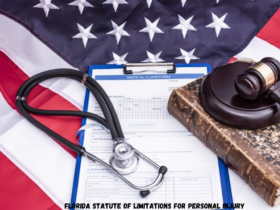


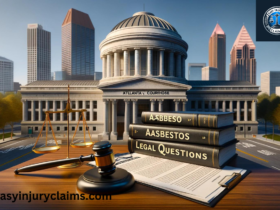
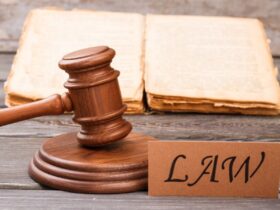
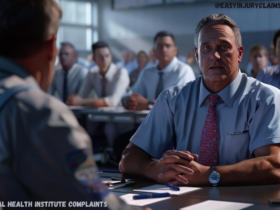
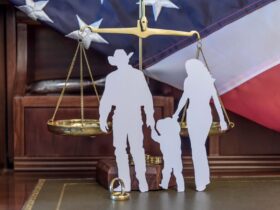
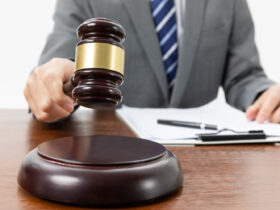


Got a Questions?
Find us on Socials or Contact us and we’ll get back to you as soon as possible.